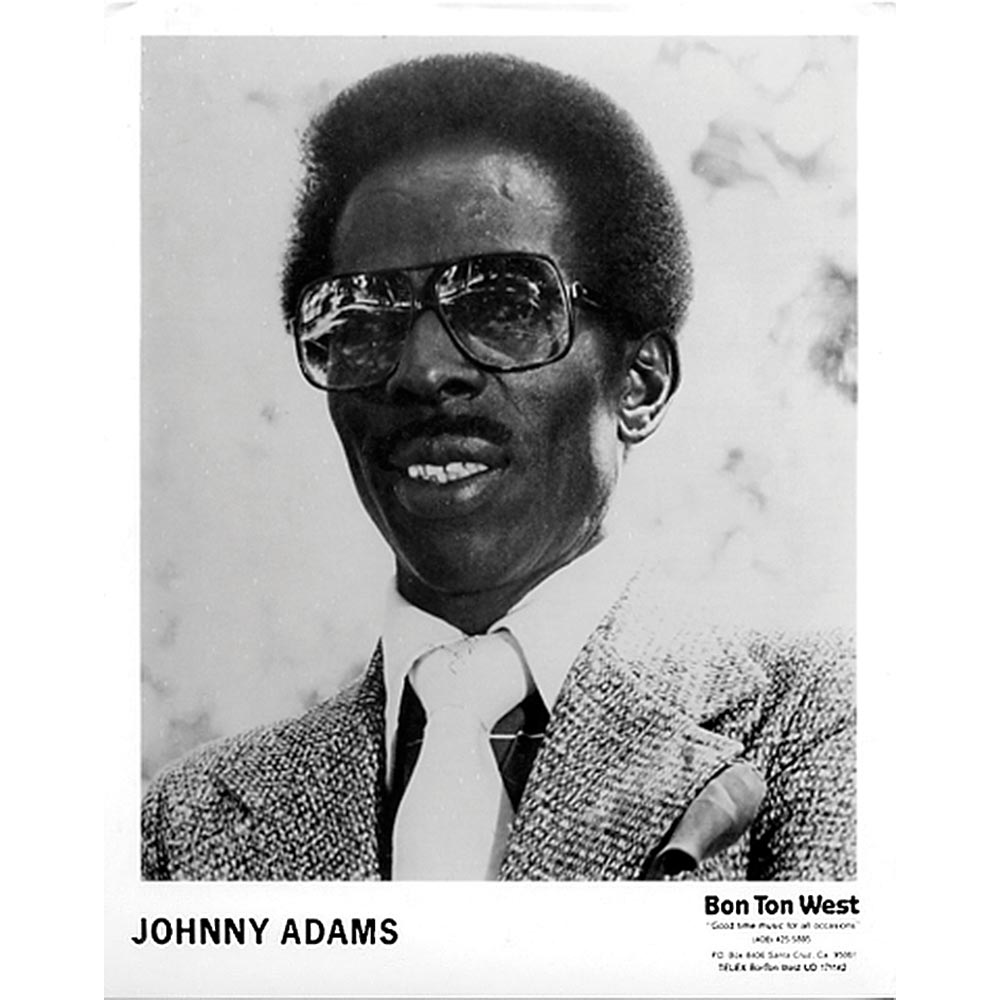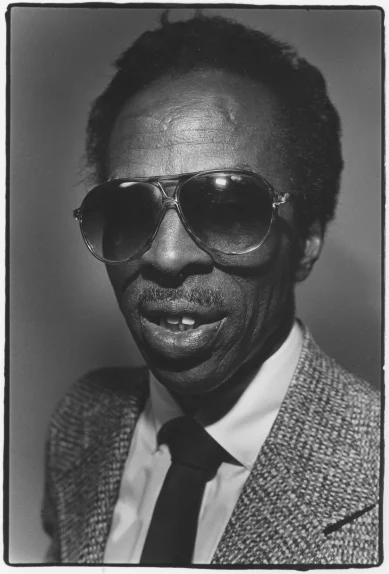JOHNNY ADAMS

Adams was born in New Orleans, Louisiana, the oldest of 10 children. He became a professional musician on leaving school. He began his career singing gospel with the Soul Revivers and Bessie Griffin's Consolators, but crossed over to secular music in 1959. His neighbor, the songwriter Dorothy LaBostrie, supposedly persuaded him to start performing secular music after hearing him sing in the bathtub. He recorded LaBostrie's ballad "I Won't Cry" for Joe Ruffino's Ric label. Produced by the teenaged Mac Rebennack (later known as Dr. John), the record became a local hit. Adams recorded several more singles for the label over the next three years, most of them produced by Rebennack or Eddie Bo. His first national hit came in 1962, when "A Losing Battle", written by Rebennack, reached number 27 on the Billboard R&B chart.
After Ruffino's death in 1963, Adams left Ric and recorded for a succession of labels, including Eddie Bo's Gone Records, the Los Angeles–based Modern Records, and Wardell Quezergue's Watch label. His records had little success until he signed with Shelby Singleton's Nashville-based SSS International Records in 1968. A reissue of "Release Me", originally released by Watch, reached number 34 on the R&B chart and number 82 on the pop chart. Its follow-up, "Reconsider Me", a country song produced by Singleton, became his biggest hit, reaching number 8 on the R&B chart and number 28 on the pop chart in 1969. Two more singles, "I Can't Be All Bad" and "I Won't Cry" (a reissue of the Ric recording), were lesser hits later the same year, and the label released an album, Heart and Soul.
Adams left SSS International in 1971 and recorded unsuccessfully for several labels, including Atlantic and Ariola, over the next few years.At the same time, he began performing regularly at Dorothy's Medallion Lounge in New Orleans and touring nightclubs in the south.
In 1983, he signed with Rounder Records, for which he recorded nine critically acclaimed albums produced by Scott Billington, beginning with From the Heart in 1984. These records encompassed a wide range of jazz, blues and R&B styles and highlighted Adams's voice. The albums included tributes to the songwriters Percy Mayfield and Doc Pomus. The jazz-influenced Good Morning Heartache included the work of composers like George Gershwin and Harold Arlen. Other albums in this series are Room with a View of the Blues (1988), Walking on a Tightrope (1989), and The Real Me (1991). These recordings earned him a number of awards, including a W.C. Handy Award. He also toured internationally, with frequent trips to Europe, and worked and recorded with such musicians as Aaron Neville, Harry Connick Jr., Lonnie Smith, and Dr. John.
He died in Baton Rouge, Louisiana, in 1998 after a long battle with prostate cancer.



Comments